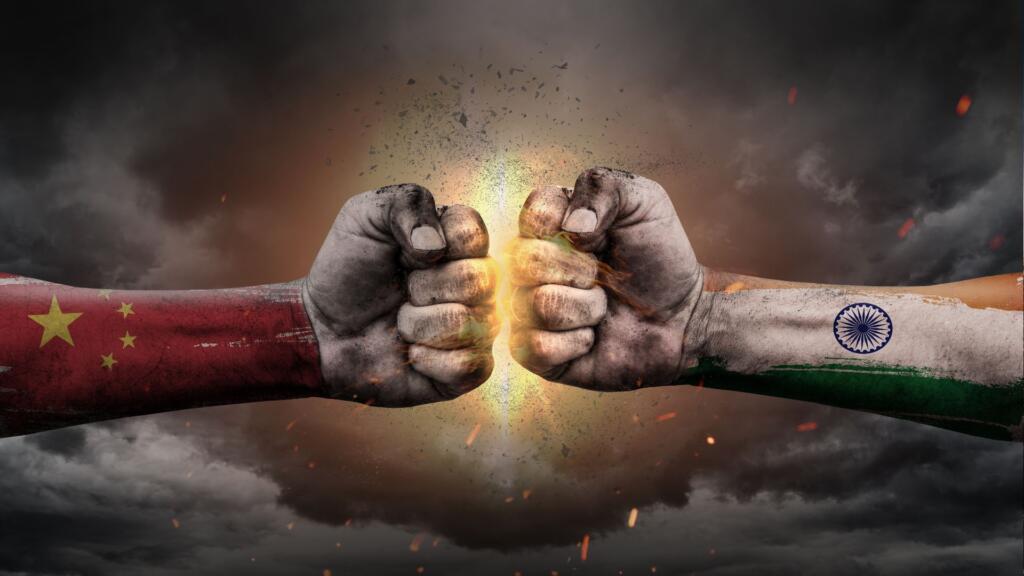China has always been like the neighbor who shows no interest in her own life or family, whether they thrive or struggle. Yet, she has an intense urge to interfere in others’ lives and disturb them for no reason. Additionally, she wants to lead the community despite lacking the qualities of a good leader.
Now the question is, why does China not want to maintain peace? Why is it so interested in neighboring nations? Why is China not focusing on healthcare, which is resulting in the deaths of many Chinese people every day?
Media is so powerful that it can change the thought process of an entire nation and shape perceptions of that nation among other countries. Beijing has taken firm control over media operations in Nepal, ensuring that critical coverage of its investments, territorial encroachments, and political maneuvers remains conspicuously absent. Negative narratives about China’s activities in Nepal are virtually non-existent in mainstream media, creating a skewed perspective shielded from public scrutiny. A few local newspapers and magazines remain exceptions to this trend.
Control Over Media Narratives
China has not only sanitized coverage of its interference in Nepal’s strategic affairs and debt-heavy investments but has also conducted media campaigns targeting Delhi and Washington. By shifting the narrative, Beijing has successfully cast shadows on other geopolitical players.
According to sources in Nepal, media manipulation intensified during Hu Yong’s tenure as Chinese Ambassador to Nepal from November 2016 to December 2018. Efforts continued under her successor, Hou Yanqi, who served until November 2022. Many in Kathmandu allege that Hou Yanqi, more than a typical diplomat, acted as a Chinese Communist Party member, significantly influencing media affairs.
Tactics Employed by Beijing
Local officials and journalists identify three main tactics Beijing used to influence Nepalese media:
1. All-Expenses-Paid Trips for Journalists
Over the past 5-6 years, China has sent an estimated 9000 Nepalese journalists on fully-funded ‘learning’ trips. A senior journalist, who never participated, noted that those who went could not explain what journalistic training they received in a country lacking democracy and freedom of expression.
2. Educational Opportunities for Journalists’ Offspring
Chinese universities often admitted these journalists’ children at subsidized rates. Alternatively, the Chinese government, through various entities, provided scholarships. This created a group of influential journalists in Nepal who became, perhaps reluctantly, aligned with Beijing’s objectives.
3. Establishing Chinese State Media Affiliates in Nepal
Chinese nationals run affiliates of prominent Chinese state media in Nepal. With substantial funds and advanced tools, these entities broadcast content favoring Beijing. They have also targeted Washington’s policies, particularly the $500 million grant from the U.S. Millennium Challenge Corporation (MCC) to improve Nepal’s power and road networks.
Impact of MCC Agreement
The MCC agreement, requested by Nepal in 2012 and ratified by its parliament in February 2022, faced violent protests and widespread misinformation. Beijing-backed media fueled fears that the U.S. would dominate Nepal. To counter this, the U.S. released a ten-point factual sheet clarifying that:
– Nepalis lead the project teams.
– Decisions and results are accountable to Nepali stakeholders.
– The agreement does not override Nepal’s constitution.
– It is not a military agreement.
– MCC funding cannot be used for military purposes.
– It is part of a 100% grant, not loans.
These clarifications aimed to dispel the substantial disinformation campaign launched by Chinese-backed media.
Voices of Dissent
One of the few voices highlighting China’s grip on Nepalese media is journalist and author Baburam Bishwakarma. His book, “Bhurajnitiko Bhar” (Geopolitical Burden), discusses the influence of Chinese arms on Kathmandu’s media. Bishwakarma told the media that Chinese penetration of the media system is significant. He pointed out that media and journalists avoid this issue but heavily highlight negative news about India and the United States. According to him, Beijing has successfully brought Nepalese media under its control.
Bishwakarma, along with fellow journalist JB Pun Magar, wrote a paper published by the Kathmandu-based think tank, Centre for Social Innovation and Foreign Policy. Titled “China’s Influence in Nepali Media Amid Changing Nepal Policy,” the report details how China has infiltrated and controlled Nepalese media to the extent that journalists now act as Beijing’s spokespersons.
Conclusion
China’s strategic manipulation of Nepalese media ensures that critical perspectives on its actions are seldom seen. Through educational incentives, media affiliates, and strategic narratives, Beijing has embedded its influence deeply within Nepal’s media landscape. This control shapes public perception, diverting attention from China’s activities and casting a favorable light on its interests in Nepal.
ALSO READ: Despite a strong comeback, Congress faces many challenges
